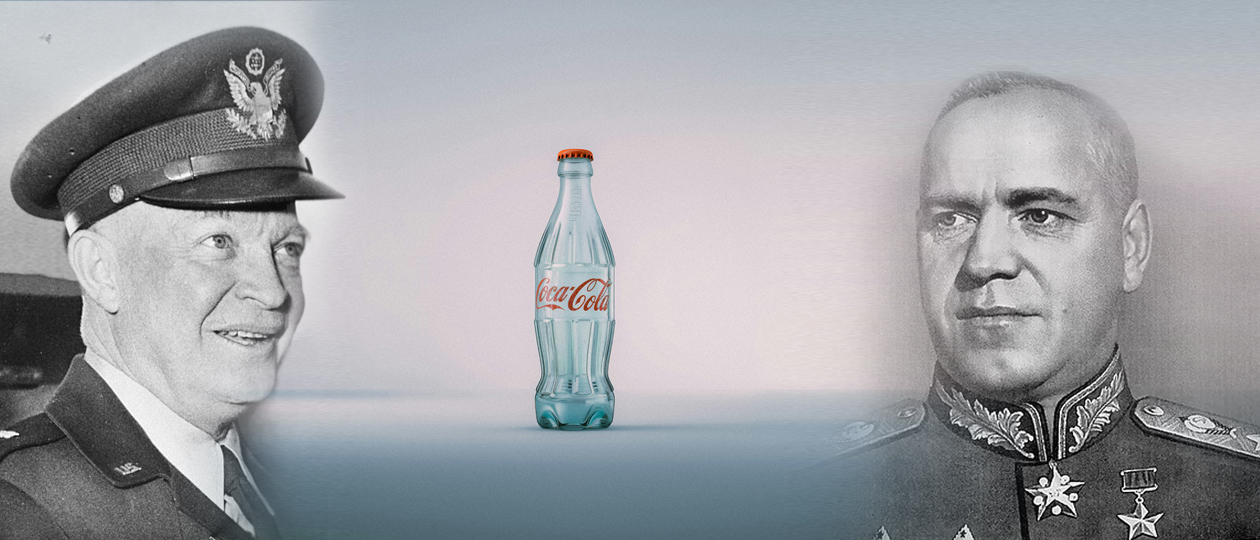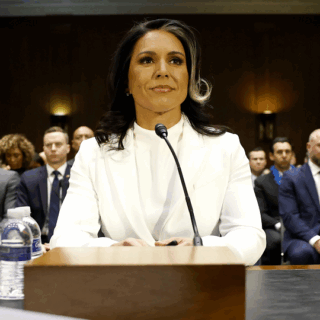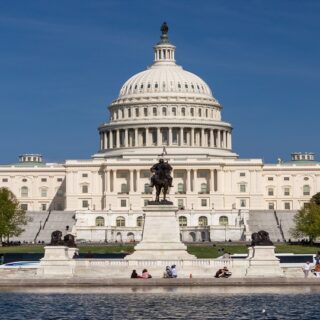
The Soviet war hero used to drink Coca-Cola disguised as vodka.
The Cold War is better remembered for greater disputes, but one of the more intriguing developments to come out of the American-Soviet ideological divide was a special batch of clear Coca-Cola. This is the story of a sweet tooth amid a prohibition on Western brands; of a time and place where a Soviet general was better with 50 crates of unmarked vodka than 50 crates of Coca-Cola.
Marshal Georgy Zhukov is one of the Soviet Union’s most decorated war heroes. His contribution was crucial to several major battles on the Eastern Front during World War II, with Zhukov leading Red Army forces against the Nazis in the Battle of Moscow, the Siege of Leningrad, the Battle of Stalingrad, and ultimately to victory in Berlin.
Upon the Allies’ victory, Zhukov met the leading American general, Dwight ‘Ike’ Eisenhower. The two men got along well on their ensuing victory lap of Europe, during which Eisenhower introduced Zhukov to the wildly successful American drink Coca-Cola. Zhukov liked it. In fact, he liked it so much that he was desperate to bring some home with him. But there was a problem.
At the time, Coca-Cola was a symbol of American capitalism and influence, with popularity soaring around the globe as well as within the United States’ borders. A Soviet general couldn’t be seen drinking it, least of all Zhukov. Upon his return to Russia, he was already under the suspicious eye of Joseph Stalin, the war general’s popularity making him a potential threat in the mind of the entrenched Soviet Supreme Leader. The last thing Zhukov wanted to do was draw Stalin’s ire any further.
Zhukov is believed to have asked his new friend Eisenhower if there was any way to smuggle some clear Coca-Cola, or ‘White Coke’ (not that kind), into the Soviet Union to satisfy his newfound craving. It’s difficult to know if the request ever quite made it to the Oval Office or just to senior American soldiers stationed in Europe in 1946, but the story goes Zhukov’s plea for White Coke went from Eisenhower to Harry Truman (who would prove to be Eisenhower’s predecessor as president) and in turn made to Coca-Cola themselves.
This was before the Cold War ramped up to intense animosity and the Americans and Coca-Cola were both accommodating.
According to author Mark Pendergast, the creation of the clear concoction fell to a chemist called Mladin Zarubica. He stripped the caramel color without altering its flavor and produced 50 crates’ worth of the beverage, which was then bottled in clear, unmarked glass and topped with a white cap with a red star. It looked like bucket loads of vodka and therefore barely raised an eyebrow.
All 50 crates made it to Zhukov, who presumably slurped them right up. While his political and military influence peaked during and immediately after World War Two, Zhukov remained wildly popular. He was four times awarded the title of Hero of the Soviet Union and six times the recipient of the Order of Lenin. He was forced out of politics in the 1950s first by Stalin and then by Nikita Khrushchev, perhaps because of his lasting popularity that continued until he died in 1974, aged 77.
Imported Coca-Cola began appearing in the Soviet Union not all that long after Zhukov’s death, with local manufacturing then starting after the fall of the Soviet Union. Even White Coke had a brief commercial life of its own in the early 1990s, when Coca-Cola released a “Tab Clear” crystal cola. It didn’t catch on, and was pulled by 1994.
The original drink is still found throughout Russia and the former Soviet Union, despite vows to withdraw it following the invasion of Ukraine. It’s proving just as hard to get coke out as it once proved to get it in.





